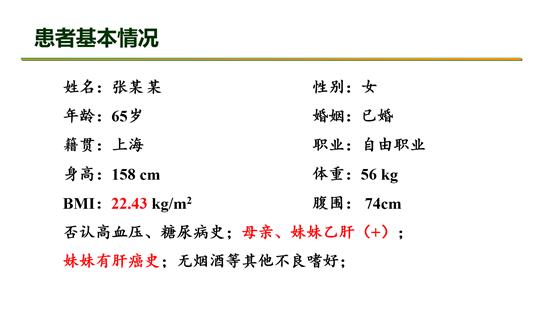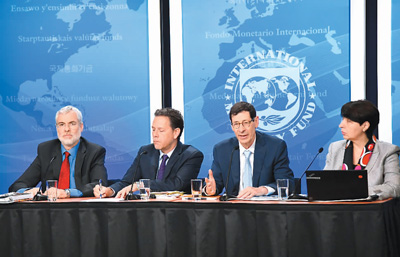Sports network │ Beijing Winter Olympics countdown device became a theme landscape, Lakers fans protested Zhan Huang.
With the official end of the 1000-day countdown to the 2022 Winter Olympics on the evening of May 10th, Beijing, as the first "Double Olympic City" in history, will write a new Olympic chapter in an all-round way.
As for FIFA, on 11th Beijing time, FIFA officially announced a three-month agency ban on the famous agent Raiola, and the ban is not limited to Italy, but global, and the transfer of its big-name star Bogba and rising star Driget may also encounter twists and turns.
The 1000-day countdown to the Winter Olympics turned into a theme landscape.
Beijing has become the first "Double Olympic City" in history, and the Beijing Winter Olympics has officially entered the countdown of 1000 days.

The countdown card for Beijing 2022 Winter Olympics was unveiled. Xinhua news agency
On the evening of the 10th, the 1000-day countdown to the 2022 Winter Olympics was held in the south square of Linglong Tower in the Olympic Park. At 8 o’clock that night, the countdown device for the 2022 Beijing Winter Olympics was officially launched in the countdown of the live host "3, 2, 1".
Equipped with an LED screen display screen of nearly 1,000 square meters, the device is erected on the 4th to 7th floors south of Linglong Tower in the central area of the Olympic Park, and the countdown screen is displayed from top to bottom: the emblem of Beijing Winter Olympics, countdown characters and countdown numbers of the Winter Olympics. The structure of Linglong Tower itself is like a number of hourglasses, which is in line with the countdown concept.
The Linglong Tower with countdown device for the Winter Olympics echoes with the Winter Olympics venues such as Bird’s Nest and Water Cube, forming a distinctive winter Olympics theme landscape.
The countdown device has become another Olympic theme landscape. According to the Beijing 2022 Winter Olympics and Paralympic Games Heritage Strategic Plan issued by the Beijing Winter Olympics Organizing Committee, the newly-built competition areas in Yanqing and Zhangjiakou will be permanently reserved, and specific arrangements have been made for the construction of winter Olympic venues, post-games utilization, cultural heritage and other aspects.
Undertaking many Olympic legacies of the 2008 Summer Olympic Games, among the 13 competition and non-competition venues in Beijing Division, 11 are legacies of the 2008 Summer Olympic Games, and three newly-built venues-National Alpine Ski Center, National Snowmobile Sled Center and Yanqing Winter Olympic Village-will be used for professional team training, event holding and mass experience after the Winter Olympics.
Zhangjiakou’s "three games and one village"-National Platform Skiing Center, National Cross-country Skiing Center, National Biathlon Center and Zhangjiakou Winter Olympic Village will become Olympic Park in the future, and the core area of the event will be turned into a world-class tourist destination.
Super League "amateur": VAR is not crossed, and the tape sticks to the jersey.
The Super League, which is the sixth largest league in the world, once again shows "amateur" in front of fans.
On the evening of 10th, TEDA played Shenhua at home. Shenhua, who was in poor condition recently, was saved at the last moment by VAR, and at the same time, he drew TEDA 1-1 and took away 1 point away.
VAR saved Shenhua, but it caused a lot of controversy after the game.
At that time, when the game came to the 88th minute, Maiti Jiang headed the ferry to the restricted area, and U23 teenager Xie Weijun, who had just been replaced, grabbed the goal. Then the game was interrupted, and VAR reminded referee Zhang lei that the goal was offside.
From the TV broadcast footage, Zhang lei watched the VAR video playback, but there was no line drawn on the screen. Fans could see the offside line drawn in the broadcast, but there was no line drawn on the referee’s screen.

The broadcast screen shows that the on-site VAR was not crossed.
Zhang lei, who was distinguished by the naked eye, also called the linesman to watch the video playback together, and finally made a penalty, blowing off Xie Weijun’s goal, which directly caused the dissatisfaction of TEDA fans.
"Referee, you don’t have a line in your little TV! Why do you blow off our good ball? "
"I feel better than taking an A4 paper!"
You know, in the previous match between Heilongjiang Volcano Mingquan and Shanghai Shenxin in League A, the referee judged whether the goal of Heilongjiang players was offside, that is, he took out a blank piece of paper to draw an offside line, which attracted foreign media to vomit.
Xie Weijun, who was blown off the goal, said on social media after the game, "A good experience, thank you", and it seems that he is also dissatisfied with this penalty.
In addition, another controversy in this game is that Wagner’s jersey neckline was damaged in the second half, but he did not change the jersey, but TEDA staff directly glued the neckline with tape.
The goal of the sixth largest league in the world, the Super League still has a long way to go …
First in team history, Azar was elected as the team’s best player of the season four times.
With the announcement of Chelsea awards this season, Azar has become the biggest winner.

Chelsea officially announced that Azar was elected as the team’s player of the season. This is the fourth time that he has been elected as the team’s player of the season, becoming the first person in Chelsea’s history.
Azar made 50 appearances for the Blue Army this season, scored 19 goals and had 16 assists. Among them, Azar 1V3 beat the Red Army in the Carling Cup and won the team’s best goal of the season.
In addition to the best player and the best goal honor, Azar also won the player of the season voted by his teammates, winning three awards by himself.
However, according to Marca, Real Madrid and Chelsea are close to completing the transaction between Azar and kovacic. Even since the end of the World Cup in Russia, Azar has been flirting with Real Madrid, and Zidane’s return to Real Madrid has also made Azar inclined to make a decision to transfer to Real Madrid.
Judging from Chelsea’s current attitude, it seems that the Blues do not intend to let Azar leave the team. At least the coach Surrey has made it clear, "I will try to talk to him. Of course I want Azar to stay, but at the same time I also hope Azar is full of motivation."
Azar’s outstanding performance this season has helped Chelsea reach the Europa League final and locked in the Champions League qualification for next season. I wonder if this can make Surrey impress Azar in the dialogue. However, some British media also revealed that Azar rejected Chelsea’s new maximum salary contract.
However, the latest news from Spain’s AS newspaper said that Real Madrid rejected Chelsea’s offer of 100 million pounds. Perhaps Azar’s question of whether to stay or not is not so quick.
FIFA: The ban on Raiola has been extended to global scope.
The players under agent Raiola have always been widely ridiculed by fans. "There are not many big-name players. At first glance, most of them are playing big names."
The players that Raiola signed include Bogba, Ibrahimovic, Donaruma, Driget, Balotelli, Insine, Little Keane and other stars, but most of the fans’ ridicule is not directed at the players themselves, but related to Raiola’s frequent overcharging.

Raiola data map
On the 11th Beijing time, FIFA officially announced that "the chairman of the FIFA Disciplinary Committee decided today to extend the ban on Raiola by the Italian Football Association to a global scale, and Raiola was banned from any agency activities within three months, and his brother’s ban was two months, which took effect today."
It is reported that the ban may be related to Raiola’s illegal transfer of young Italian player Scamacca from Sassuolo to Dutch zwolle.
Earlier, Marca also revealed that Barcelona and Ajax had reached an agreement on the transfer fee of 70 million euros for Driget, but since then, the transfer has been put on hold because Laiola offered a "sky-high commission", and Laiola wanted to draw 20% commission from Driget’s transfer, that is, 14 million euros.
Now that Raiola is banned from any agency activities for three months, will Bogba’s transfer be "cold"?
Lakers fans marched in protest: James is useless
The selection of coaches is at a loss, and now the chaotic Lakers have caused strong dissatisfaction among fans.

James Oriental IC data map
On the 11th Beijing time, a large number of Lakers fans gathered outside the Staples Arena in Los Angeles to protest against the management of the Lakers.
In the live video sent by ESPN, a male fan shouted at the camera, "My uncle watched the magician play, and my brother watched Kobe play. I’m watching LeBron play now. But what did he bring me? There’s nothing. I want the championship, which is what we want. We don’t want to watch the Clippers game. We don’t want to see the first round of the playoffs. We hope that the Lakers can rise. "
The fans at the scene also shouted their demands in the parade, "fire everyone!"
It is reported that the Lakers fans had taken the lead in announcing the parade in Reddit, a well-known American forum. At that time, ESPN reporter Ramona Shelburne revealed that the top management of the Lakers knew about the event and did not intend to express any opinions.
Season reimbursement, Gasol or missed the World Cup.
The Bucks, who took the lead in advancing to the East Finals, now have bad news: Gasol, the inside player of the team, suffered a stress fracture in his left foot and was reimbursed for the season.

Bucks player Pau Gasol
Since joining the Bucks in March, Pau Gasol has almost been in a state of injury, playing three games for the Bucks, averaging only 1.3 points and 3.3 rebounds in 10.3 minutes per game.
Now that Gasol is completely reimbursed for the season, no matter whether the Raptors, another group of Eastern Conference semifinals, can advance, fans will not be able to see the Gasol brothers appear on the stage of the East Finals at the same time this season.
What is even more unpredictable is that it is unknown whether Gasol can participate in the basketball World Cup held in China this summer after receiving the reimbursement for the fracture repair surgery season.
According to previous reports, Gasol has publicly stated that he hopes to represent Spain in the basketball World Cup.
The finals of the National Campus Basketball Championship started.
On the 9th, the National Campus Basketball Championship (Junior High School) Finals and the China District Trial of Jr. NBA Global Championship, sponsored by the Ministry of Education and hosted by the National Campus Basketball League, officially kicked off in Tianjin NBA Center.

The National Campus Basketball Championship aims to provide a platform for young people who love basketball all over the country to learn and communicate. A total of 45 male and female teams from 24 provinces, autonomous regions and municipalities participated in the competition. In the end, 16 teams advanced to the national finals held in Tianjin NBA Center from May 9 to May 13.
In addition, the Ministry of Education entrusts the Capital Institute of Physical Education to form an expert committee, and through the national finals, 10 boys and 10 girls will be selected to form the "China Campus Basketball Team". After training, they will go to Orlando, USA in August to participate in the "Jr. NBA Global Championship", a global youth basketball event organized by NBA.
Zhang Yiju, CEO of NBA China, said that at present, more than 4 million students from 4,000 schools across the country have participated in the Jr. NBA project.
Xu Hong, a researcher at the Department of Physical Education and Health Arts of the Ministry of Education, expressed the hope that students in China would enjoy and actively play basketball and show the world the progress of youth basketball in China.

































